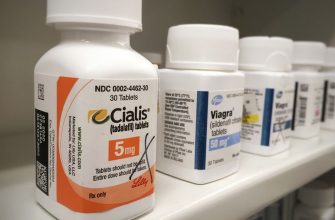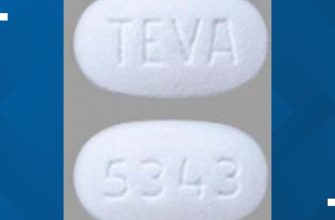Consider Cialis as a strong contender. Its longer duration of action – up to 36 hours – offers significant advantages over Viagra. This allows for greater spontaneity and less rigid scheduling.
Alternatively, explore Levitra. Known for its relatively fast onset of action, Levitra can be effective within 25-60 minutes, making it a suitable choice for those needing quicker results. Remember to always consult your doctor before starting any medication.
Beyond brand names, many generic options exist, offering the same active ingredients at lower prices. Generic sildenafil (Viagra’s active ingredient) and tadalafil (Cialis’s active ingredient) are widely available and rigorously tested for safety and efficacy. Compare prices and read reviews to find the best option for your budget.
Important Note: Individual responses to medication vary. What works well for one person might not be as effective for another. Open communication with your healthcare provider is key to finding the right treatment plan.
Disclaimer: This information is for general knowledge and does not constitute medical advice. Always consult a physician before starting any new medication.
- Best Viagra Like Pills: A Comprehensive Guide
- Understanding Erectile Dysfunction and Treatment Options
- Exploring FDA-Approved Viagra Alternatives
- Over-the-Counter Options and Natural Remedies for ED: A Critical Look
- Common OTC Supplements and Their Limitations
- Lifestyle Changes and Natural Approaches
- Comparing OTC Options and Lifestyle Changes
- Seeking Professional Medical Advice
- Choosing the Right Treatment: A Discussion of Patient Factors and Considerations
Best Viagra Like Pills: A Comprehensive Guide
Consider Tadalafil (Cialis) for long-lasting results, potentially up to 36 hours. This makes it a popular choice for spontaneity.
Alternatively, Vardenafil (Levitra) offers a faster onset of action than Tadalafil, typically within 25-60 minutes, ideal for those needing quicker results.
Avanafil (Stendra) provides another option, known for its relatively fast onset and shorter duration of action. It’s a good choice if you need a shorter-acting medication.
Important Note: These medications are prescription-only. Consult your doctor to determine which medication, if any, is right for you. They can assess your overall health and potential interactions with other medications you may be taking. A thorough medical evaluation is necessary before starting any treatment for erectile dysfunction.
Factors affecting choice include pre-existing conditions, other medications, and personal preferences. Your doctor will help you weigh these factors.
Remember to discuss any potential side effects with your doctor. Common side effects can include headache, flushing, nasal congestion, and indigestion, but severity varies between individuals and medications.
Disclaimer: This information is for educational purposes only and does not constitute medical advice. Always consult your healthcare provider for any health concerns or before making any decisions related to your health or treatment.
Understanding Erectile Dysfunction and Treatment Options
Erectile dysfunction (ED) affects millions, often stemming from physical issues like cardiovascular disease, diabetes, or nerve damage. Psychological factors, such as stress and anxiety, also play a significant role.
Lifestyle changes are crucial. Regular exercise, a balanced diet, and quitting smoking significantly improve blood flow and overall health, often positively impacting ED. Weight management is particularly important, as obesity is a common risk factor.
Medication offers various solutions. PDE5 inhibitors, like sildenafil (Viagra), tadalafil (Cialis), and vardenafil (Levitra), relax blood vessels, improving blood flow to the penis. These are generally well-tolerated but should be discussed with a doctor, as they have potential side effects. Other medications, such as alprostadil (a vasodilator injected into the penis or inserted as a suppository), offer alternatives.
Hormone therapy may be considered if low testosterone levels contribute to ED. A doctor will assess testosterone levels and prescribe appropriate treatment if needed. This often involves testosterone replacement therapy.
Vacuum erection devices are non-invasive options that create a vacuum around the penis to draw blood in, facilitating an erection. Penile implants, surgically placed, offer a permanent solution for severe cases.
Counseling, particularly cognitive behavioral therapy (CBT), proves beneficial for ED related to anxiety or performance issues. Addressing the psychological aspects can dramatically improve erectile function.
Remember, seeking professional medical advice is paramount. A doctor can accurately diagnose the underlying cause of your ED and recommend the most suitable treatment plan for your individual needs and health status. Don’t hesitate to schedule a consultation.
Exploring FDA-Approved Viagra Alternatives
Consider tadalafil (Cialis) or avanafil (Stendra). Both are oral medications approved by the FDA to treat erectile dysfunction.
Cialis offers a longer duration of action than Viagra, potentially lasting up to 36 hours. This makes it a convenient option for some men.
Stendra acts more quickly than Viagra, often producing effects within 15 to 30 minutes. This rapid onset might be beneficial for spontaneous intimacy.
Each medication has its own specific dosage and potential side effects. You should discuss these with your doctor before starting any treatment. Your physician will assess your medical history and current health to determine the best and safest option for you. They will also explain potential interactions with other medications you might be taking.
Remember, these are just two examples, and other FDA-approved options might be available. Always consult a healthcare professional for personalized advice and to discuss a treatment plan tailored to your needs.
Over-the-Counter Options and Natural Remedies for ED: A Critical Look
While prescription medications like Viagra offer proven efficacy, many explore over-the-counter (OTC) alternatives and natural remedies for erectile dysfunction (ED). However, understanding their limitations is crucial. OTC options, often containing herbal ingredients or supplements, lack the rigorous testing and FDA approval of prescription drugs. Their effectiveness varies widely depending on the individual and the specific product.
Common OTC Supplements and Their Limitations
Many OTC products claim to improve ED symptoms, frequently featuring ingredients like L-arginine (an amino acid that produces nitric oxide, helping blood vessels relax), yohimbe (an extract from an African tree bark), or ginseng (a traditional herbal remedy). Scientific evidence supporting their effectiveness for ED remains inconsistent and often limited by small sample sizes or poor study design. These supplements can also interact negatively with other medications, potentially causing adverse effects. Always consult your doctor before taking any supplement, particularly if you have pre-existing health conditions or are on other medications.
Lifestyle Changes and Natural Approaches
Lifestyle modifications offer a safer and potentially more effective approach to managing ED. Regular exercise, a balanced diet, weight management, stress reduction techniques (like meditation or yoga), and quitting smoking demonstrably improve cardiovascular health, a key factor in erectile function. Adequate sleep is also vital. These changes might take time to show results, but they address the root causes of ED more directly than quick-fix supplements.
Comparing OTC Options and Lifestyle Changes
| Factor | OTC Supplements | Lifestyle Changes |
|---|---|---|
| Effectiveness | Inconsistent, varies greatly | Proven to improve cardiovascular health, impacting ED |
| Safety | Potential for interactions with medications, side effects | Generally safe when implemented responsibly |
| Cost | Can be expensive long-term | Often inexpensive, focusing on existing resources |
| Time to Results | Variable, often quick claims, but limited evidence | Gradual improvement over time |
Seeking Professional Medical Advice
Remember, self-treating ED can be risky. If you experience persistent erectile dysfunction, consult a doctor. They can diagnose the underlying cause, rule out serious health issues, and recommend appropriate treatment, including medication or other therapies. A professional assessment ensures you receive the most effective and safest care tailored to your individual needs.
Choosing the Right Treatment: A Discussion of Patient Factors and Considerations
Begin by honestly assessing your overall health. Pre-existing conditions like heart disease or high blood pressure significantly impact treatment options. Discuss these with your doctor.
Consider your lifestyle. Smoking, excessive alcohol consumption, and lack of exercise can affect treatment efficacy and potential side effects. Lifestyle modifications often improve treatment outcomes.
- Medication Interactions: Inform your physician about all medications you currently take, including over-the-counter drugs and supplements. Some interactions can be dangerous.
- Allergies: Clearly state any known allergies, particularly to medications. This prevents adverse reactions.
- Age: Older men might require adjusted dosages or alternative treatments due to age-related physiological changes. Your doctor will consider this.
Your preferences matter. Discuss your comfort level with different treatment methods, including potential side effects. Open communication ensures a personalized approach.
- Cost: Treatment costs vary widely. Factor this into your decision-making process, and explore available financial assistance programs if needed.
- Convenience: Treatment options range from daily pills to injections. Choose a method that fits your daily routine.
- Long-term goals: Determine your treatment objectives. Are you seeking short-term relief or a long-term solution? This guides treatment selection.
Regular follow-up appointments are vital. Monitor your progress and report any changes or concerns to your healthcare provider. This ensures treatment adjustments as needed.
Remember, your doctor is your best resource. A thorough discussion of your individual needs and circumstances is critical for selecting the right treatment.






